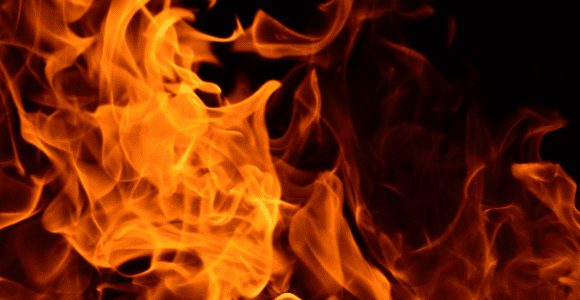Welcome readers! Please subscribe through the buttons on the right.
(Read this series from its beginning here.)

First, the language that the gospels used here would not have conjured a vision of post-mortem, eternal torment for the original Jewish audience. The word translated into English as “hell” is the Greek word, gehenna. That word already had a history and association for Mark’s original Jewish audience. Gehenna is the Greek form of the Hebrew/Aramaic valley of Gehinnom, or Ge Ben (son of) Hinnom. It named “a valley on the south and east of Jerusalem, which was so called from the cries of the little children who were thrown into the fiery arms of Moloch” (Joseph Henry Thayer, A Greek-English Lexicon of the New Testament. American Book Company, 1889; read stories about Gehenna in 2 Chronicles 28:1-4, 2 Chronicles 33:1, and Jeremiah 7:31-32).
In the Hebrew scriptures, Gehenna evolves from the location of horrific atrocities to the symbol of the destruction of Judah and Jerusalem at the hands of foreign, Gentile powers. Consider these examples:
“Thus said the LORD: Go and buy a potter’s earthenware jug. Take with you some of the elders of the people and some of the senior priests and go out to the valley of the son of Hinnom at the entry of the Potsherd Gate and proclaim there the words that I tell you. You shall say: Hear the word of the LORD, O kings of Judah and inhabitants of Jerusalem. Thus says the LORD of hosts, the God of Israel: I am going to bring such disaster upon this place that the ears of everyone who hears of it will tingle. Because the people have forsaken me, and have profaned this place by making offerings in it to other gods whom neither they nor their ancestors nor the kings of Judah have known; and because they have filled this place with the blood of the innocent, and gone on building the high places of Baal to burn their children in the fire as burnt offerings to Baal, which I did not command or decree, nor did it enter my mind. Therefore, the days are surely coming, says the LORD, when this place shall no more be called Topheth, or the valley of the son of Hinnom, but the valley of Slaughter. And in this place, I will make void the plans of Judah and Jerusalem and will make them fall by the sword before their enemies, and by the hand of those who seek their life. I will give their dead bodies for food to the birds of the air and to the wild animals of the earth.” (Jeremiah 19:1-7)
“But if you do not obey me to keep the Sabbath day holy by not carrying any load as you come through the gates of Jerusalem on the Sabbath day, then I will kindle an unquenchable fire in the gates of Jerusalem that will consume her fortresses.’” (Jeremiah 17:27)
“Edom’s streams will be turned into pitch,
her dust into burning sulfur;
her land will become blazing pitch!
It will not be quenched night or day;
its smoke will rise forever.
From generation to generation it will lie desolate;
no one will ever pass through it again.” (Isaiah 34:9-10)
“The voice of the LORD will shatter Assyria;
with his rod he will strike them down.
Every stroke the LORD lays on them
with his punishing club
will be to the music of timbrels and harps,
as he fights them in battle with the blows of his arm.
His Topheth [the Valley of Hinnom or Gehenna] has long been prepared;
it has been made ready for the king.
Its fire pit has been made deep and wide,
with an abundance of fire and wood;
the breath of the LORD,
like a stream of burning sulfur,
sets it ablaze.” (Isaiah 30:31-33)
“‘As the new heavens and the new earth that I make will endure before me,’ declares the LORD, ‘so will your name and descendants endure. From one New Moon to another and from one Sabbath to another, all mankind will come and bow down before me,’ says the LORD. ‘And they will go out and look on the dead bodies of those who rebelled against me; the worms that eat them will not die, the fire that burns them will not be quenched, and they will be loathsome to all mankind.’” (Isaiah 66:22-24)
Jeremiah uses the phrase “unquenchable fire” to refer to destruction by an outside empire. In Isaiah, the language of Assyria’s “Topheth” focuses on events happening in this life. In light of this, both Jeremiah’s language of eternally burning fire and Isaiah’s language of worms not dying (quoted in this week’s reading from Mark’s gospel) are highly metaphorical and to be taken seriously, not literally.
These prophetic warnings about Gehenna pointed to Gentile empires destroying people in this life, not after death. This destruction was consistently threatened as punishment for systemic injustice, oppression and violence done to the vulnerable and marginalized.
No wonder it was to be taken seriously.
It makes sense that Jesus would use this language taken from his Hebrew scriptures to speak to those who cause “little ones” to stumble. It is also quite possible that the author of Mark used this language to be connected to the destruction of Judea and Jerusalem by the Roman Empire in the 1st Century. Again, Jerusalem was being destroyed by a foreign, Gentile power.
There’s one more item in our passage worth discussing. We’ll consider it next.













